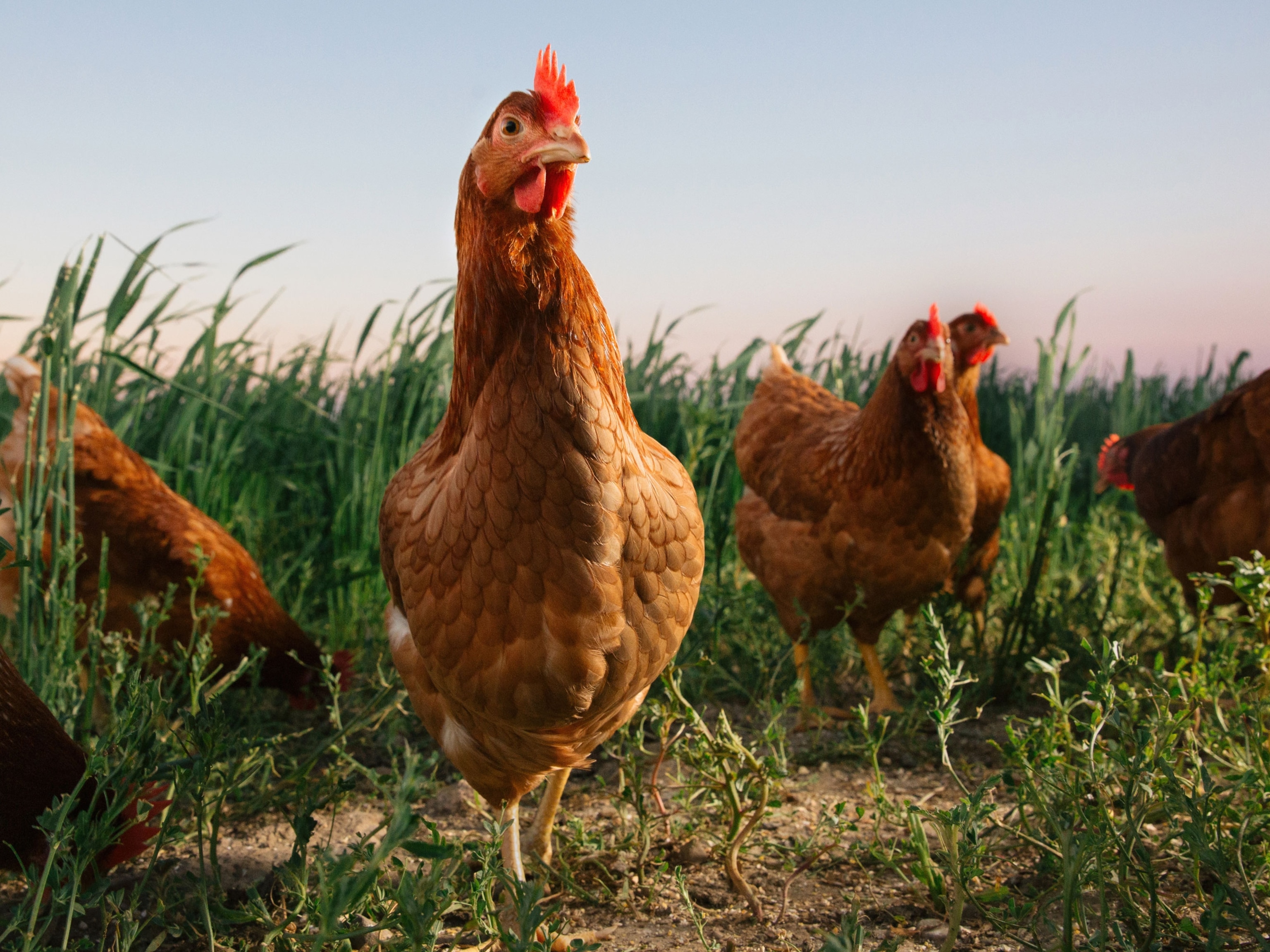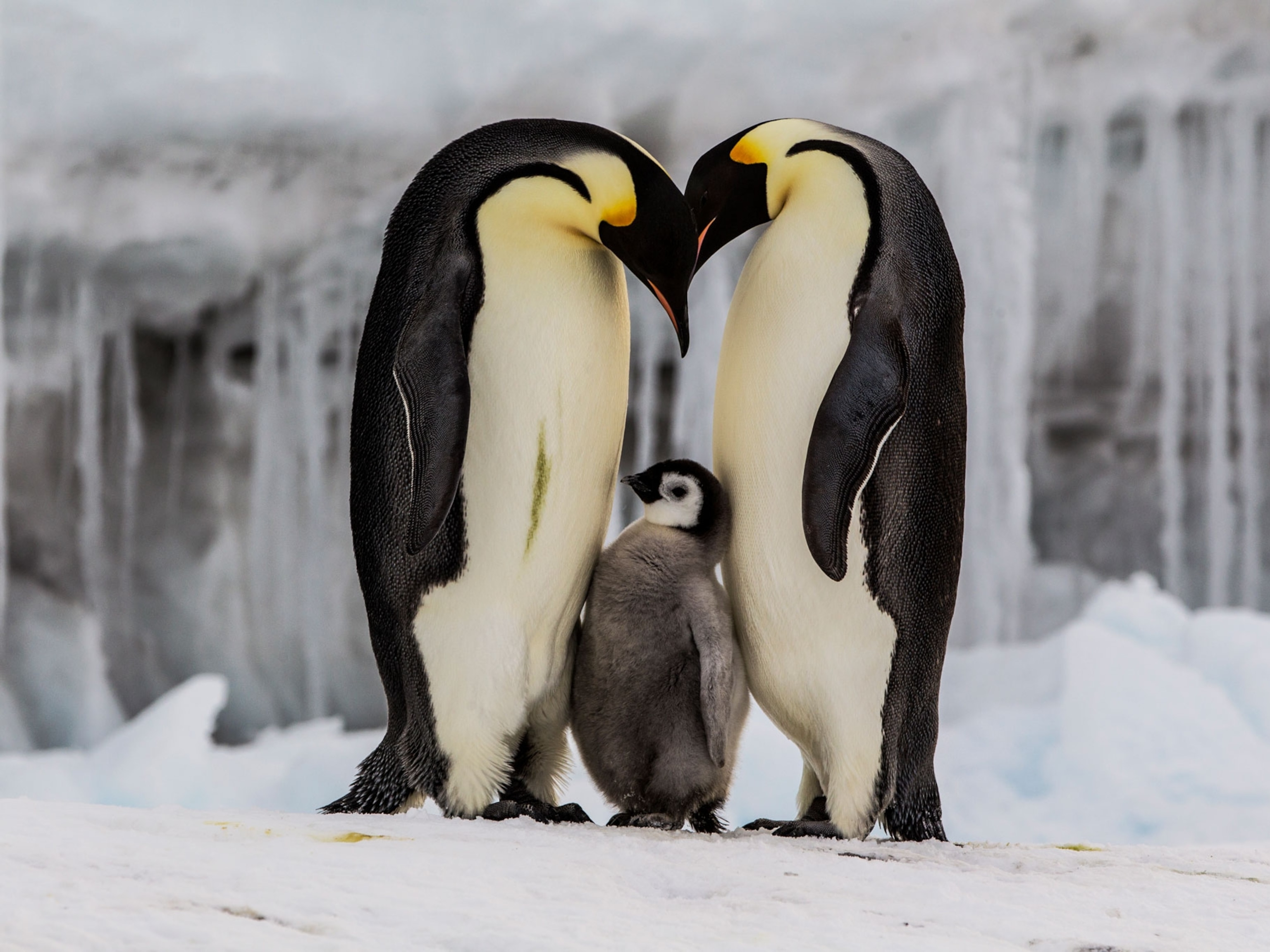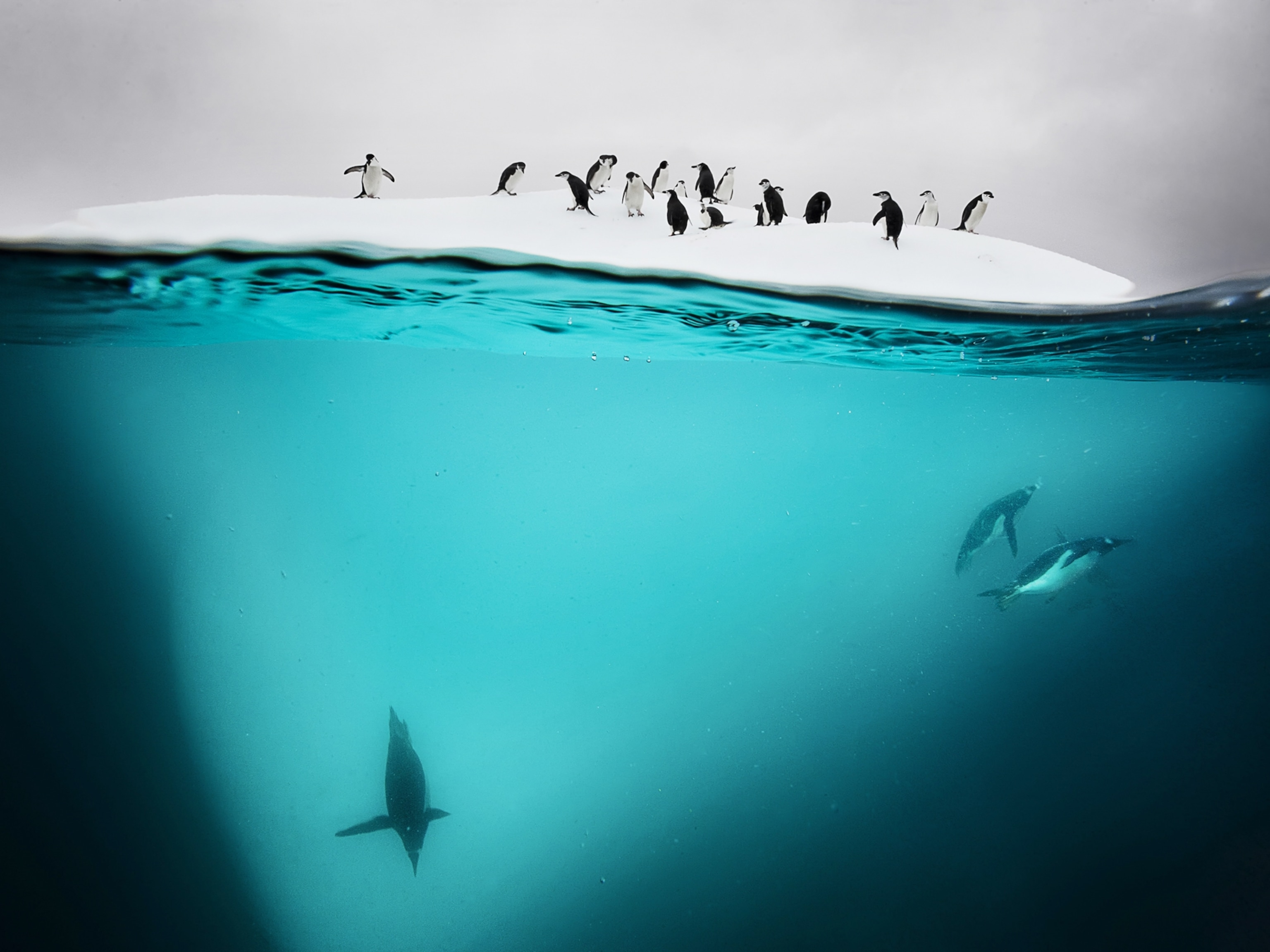This monstrous mama laid the world’s largest egg
It was 10 feet tall and weighed more than 1,000 pounds. But that didn’t stop it from going extinct.

The average chicken egg can fit comfortably in the palm of your hand. This rare, fossilized specimen from National Geographic’s historical collection is more than 100 times larger. At just over a foot long and nine inches in diameter, the intact egg belonged to an elephant bird (Aepyornis maximus), a flightless herbivore endemic to Madagascar that’s been extinct since at least the 17th century.
(The surprising closest relative of the huge elephant birds.)
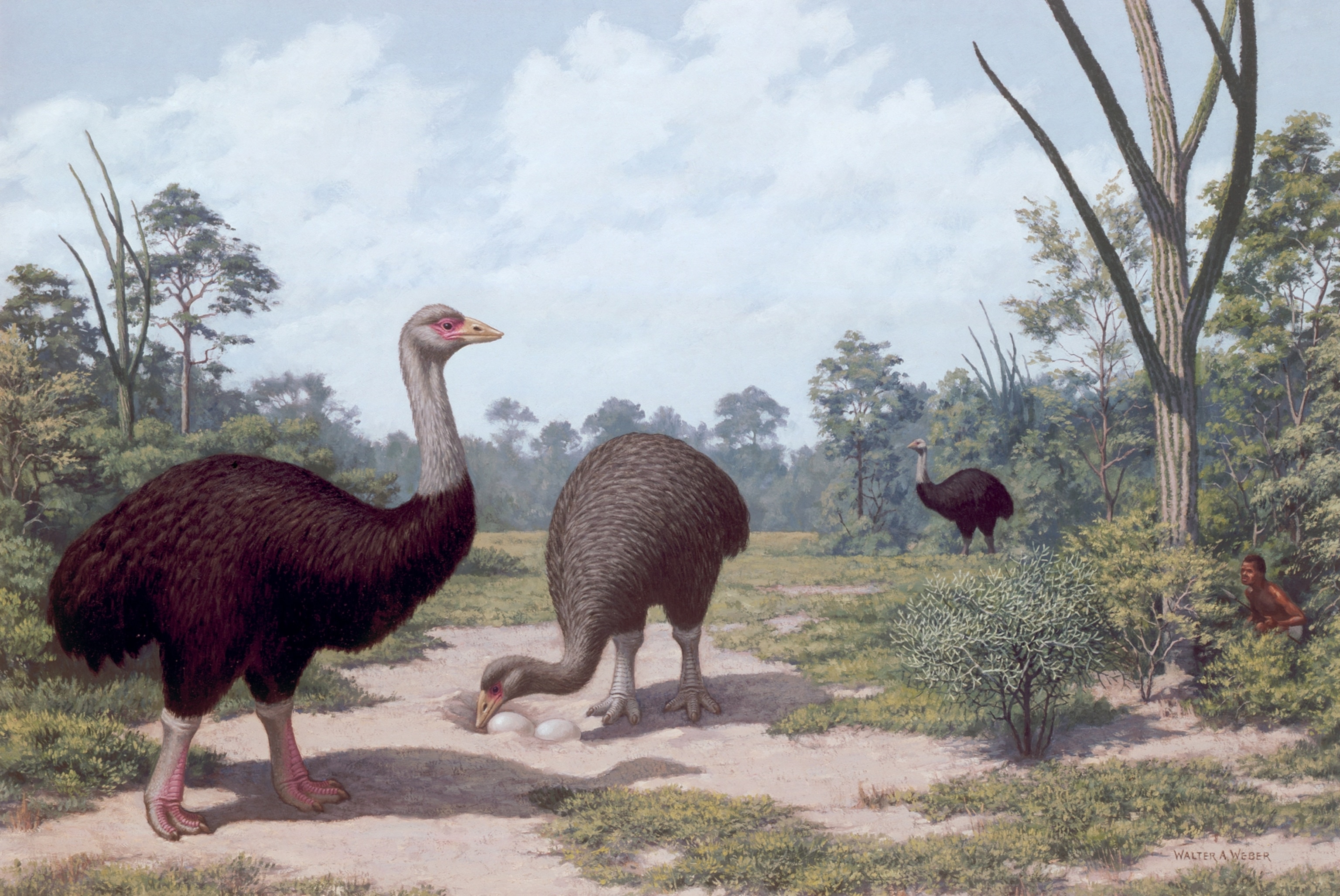
Today researchers believe the bird resembled an oversize ostrich, though it was most closely related to the kiwi, a smaller species of ratite. Its thick legs had to support some serious weight: Adults could grow to be 10 feet tall and over 1,000 pounds. Elephant bird lineage dates to around 50 million years ago, but their numbers declined as humans settled Madagascar. What happened? Gifford Miller, a geologist at the University of Colorado Boulder who has studied Aepyornis eggshells, says human predation may have been a cause—perhaps even before the birds could hatch.
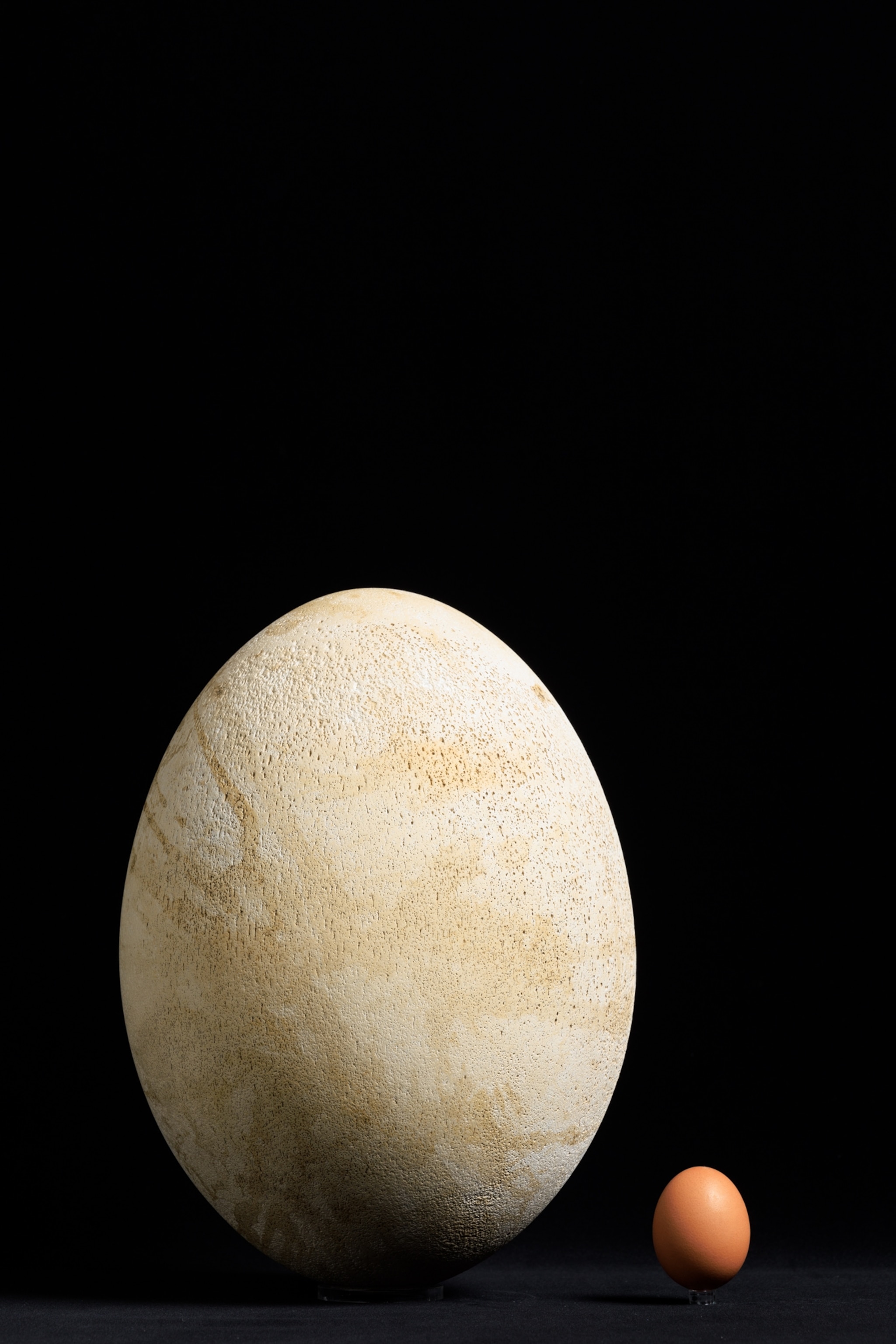
The eggs were probably durable enough for humans to carry away from nests. Evidence suggests they were plenty tough: Two complete elephant bird eggs have been discovered on beaches in Western Australia, apparently having floated 4,000 miles across the Indian Ocean. For humans, poaching an egg would have been simpler than subduing the half-ton bird. As Miller notes, when it comes to keeping our species alive, “we’re extremely efficient.”
(An elephant bird egg auction inspired this write to hunt the Nat Geo archives.)



